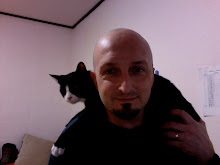Originally published in The Groove, May 2007
by Tracey Stark
Every so often a new “healthy living” trend will come along and sweep people up in a frenzy. While most of these fads die a rather rapid death, some manage to stick around because of the hard work of marketing geniuses.
Think of all those useless contraptions sold on late-night television designed to give you the “ultimate workout.” Most households have one or two of these things in a closet somewhere or perhaps being used to prop open a door.
Oxygen bars popped up in cities all over the world a few years back. Then, when people realized that they were already surrounded by oxygen, they stopped paying $20 to sit in a room designed for breathing.
The same can be said for diets. Low-carb, no-carb, high-fat, all-fruit, all-popcorn, all-bacon, no-taste, the list goes on. And as with every other trend, they have come and gone, replaced by the next big thing.
Then, in 2003, a private economic think tank in Korea advised companies that the new “well-being” trend was going to be big. It was even chosen as the management keyword for 2004.
In the beginning, this trend seemed to be based on the consumer’s best interests. Foods with all-natural ingredients were being marketed more. New healthy drinks and negative-ion air purifiers popped up everywhere.
But then, somewhere along the way, something went terribly wrong. Products began appearing, seemingly out of nowhere, touting their “well-beingness” when the relationship was tenuous at best.
I first noticed it more than a year ago when a new restaurant was going up in my neighborhood. The sign in front of the construction site said the diner was going to be called, simply, “Well Being.” Hopeful that it would be a vegetarian restaurant where I could take my then-girlfriend (now wife), I was anxious for its opening.
Within a month the restaurant opened and I excitedly ran up to the window to read the menu. The main dish at this shop was samgyeopsal (basically chunks of pork that are about half meat and half fat). Plastered on some of the walls inside were posters promoting soju, Korea’s favorite liquor. To say I was confused is a bit of an understatement.
As time went on, more examples of this well-being bizarro world appeared. Newspaper were writing stories and promoting goods like well-being refrigerators, well-being cell phones and even well being sneakers for old people. We used to call these shoes “orthopedic.” But I guess you can’t expect to keep pace wearing a pair of orthopedic shoes.
It all came to a head for me last year when the Doosan beverage company introduced a well-being soju. It contains 20 percent alcohol, versus the normal 25 percent alcohol content. By promoting booze as “well being”, they more than doubled their market share. It started to make sense to me. Apparently, it’s all about the money.
And it gets better. An editorial in a local English language newspaper written by a foreigner living in Seoul sounded frighteningly like ad copy for a cigarette company. In it, the author describes her discovery of a new low-tar version of her favorite smokes, designed, she said, in the spirit of the well-being trend with the health of the consumer in mind.
“It being winter, and feeling especially "fresh" from my Pilates workout and two-hour visit to the local sauna, I decided to try the menthol variety…” she writes. Her blather about this particular brand of cancer stick continues: "…it took amazingly little time to adjust, and after several weeks, I’m already feeling the benefits of smoking a lighter cigarette, not just physically but mentally as well, for having taken yet another step towards a better, brighter me."
Still, my favorite is of a business owned by a former friend of my wife. He decided it would make sense to call his new enterprise “Well Being Concrete Co.”
But, as I’ve pointed out already, all good things must come to an end. So, in order to promote a smooth transition to the next commercially-viable trend, I am going to suggest a replacement for the “well-being” fad: “Psychiatry.”
Think of the possibilities.
Tuesday, May 15, 2007
Subscribe to:
Post Comments (Atom)



No comments:
Post a Comment